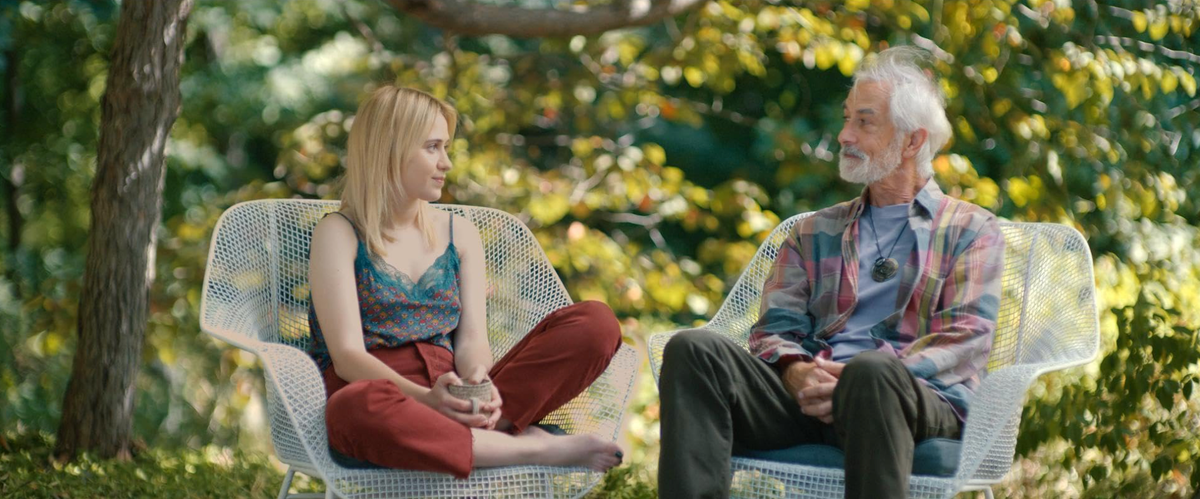O Horizon

This review comes to us from our On-The-Ground correspondent and Santa Barbara native, Jack O’Mahoney.

If Dory the monkey has 100 fans I am one of them. If Dory the monkey has 1 fan I am that fan. If Dory the monkey has no fans then I am dead (and uploading my consciousness into an app).
In the Q&A after the film, writer-director Madeleine Sackler (yes, she is one of those Sacklers…) expressed that she wanted to make “an uplifting film about loss.” O Horizon certainly hits those notes. It displays a clear reverence for the work of David Lynch (a perhaps unintentionally poetic tribute to the late artist given the film’s themes of loss and grief), even directly referencing him in a few moments. Instead of attempting to emulate his style, however, O Horizon does its own thing. The film manages to toe the line between science fiction and magical realism, resulting in a sort of feel-good, Instagram-filtered dystopia (I swear, New York has never been color-graded to look so much like California!).
Sackler also mentioned that, despite the sci-fi themes of the film, O Horizon is not meant to feel like something from the far-future, instead it is intended to represent an “alternate present.” The film accomplishes this by grounding its fictional elements within the realm of possibility–who’s to say we won’t all be chatting with our dead AI dads in a few years’ time? In fact, the most unbelievable part of the story was that Abby went back to dating men after being with women (and got that lucky with her first Tinder match? Please).
The film is almost endearingly out of touch in some areas (what postgrad can afford an apartment that big in New York City?) and there is a bigger conversation to be had here about members of the ruling class creating work meant to portray the lived reality of the average person, and how this shapes culture on and offscreen. People with more capital (like, for example, Madeleine Sackler of the Sackler family) have time and resources to devote to filmmaking in ways that members of the working class can’t. Thus their views and politics are overrepresented in cinema, creating a warped reflection of reality that doesn’t map neatly onto most people’s lived experiences. O Horizon is just one example of this, and if you’re anything like me, you may have to shut off the cynical commie part of your brain to get into it. At its core, however, O Horizon tells a very human (and monkey?) story about navigating grief and struggling to find meaning in an increasingly absurd and hyperreal world, and it does so with success. Aimee Mann, play me out!



